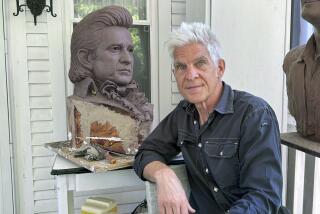Editorial: The new face of the $20 bill
- Share via
More Americans may gaze on the likeness of Andrew Jackson each day than on any other figure from U.S. history, in part because inflation has put more $20 bills in people’s hands than in the past and in part because that bill is the ATM standard. It’s the one that some people fold over twice and slip discreetly into the appropriate hand in order to get a good table. It’s a favorite of counterfeiters and money launderers.
None of that ubiquity has made us experts on Andrew Jackson or his exploits, and it likely hasn’t made us subconsciously absorb his views on indigenous people or national banks. Still, currency is a sort of edited Hall of Fame, just like the postage stamps of old and those statues in the Capitol rotunda, and as such it’s time for Jackson to relinquish one of his pedestals. The U.S. Treasury announced Wednesday that his image will be replaced by Harriet Tubman’s, and it’s a good choice.
Tubman was a slave who freed herself and then worked to free others, helping them to escape bondage as part of what has become known as the Underground Railroad. That journey — the escape, the flight, the continuing resistance — is an indelible part of American history. It is the other side of the coin — or the bill — in what is otherwise an incomplete story of liberty. It is a reminder that freedom is bigger than any single person, bigger even than national heroes like Washington, Jefferson and Jackson, who fought to gain and preserve freedom while denying it to others.
And it is a slow, insufficient but welcome note that the solidly male fraternity represented on U.S. bills represents only half of the nation’s population, half its story and, when it comes down to it, half its value.
So will we now become the nation of experts on Tubman that we never were on Jackson? Perhaps she’ll just be another face that we see but give little thought to when we walk away from the ATM. But it will be a female face, and one with features that represent an American population with ancestry in Africa. Our wallets, at least, will have a more well-rounded view of who we are and how we got here.
Follow the Opinion section on Twitter @latimesopinion and Facebook
More to Read
A cure for the common opinion
Get thought-provoking perspectives with our weekly newsletter.
You may occasionally receive promotional content from the Los Angeles Times.









